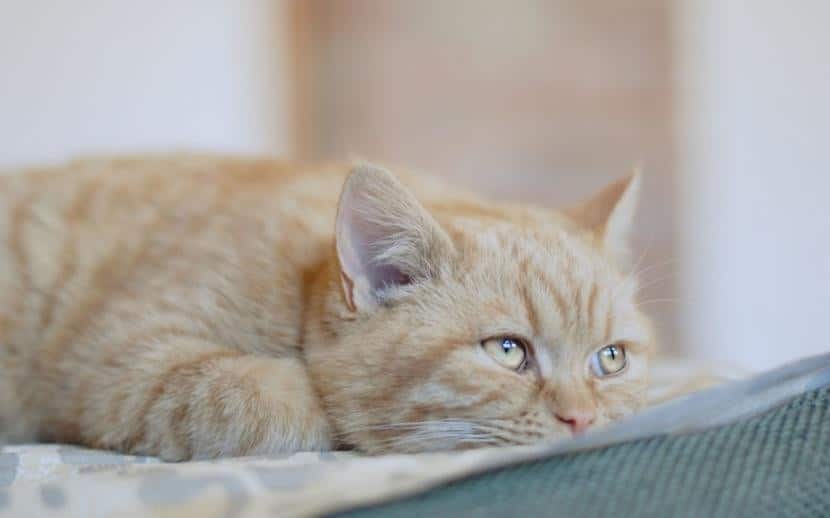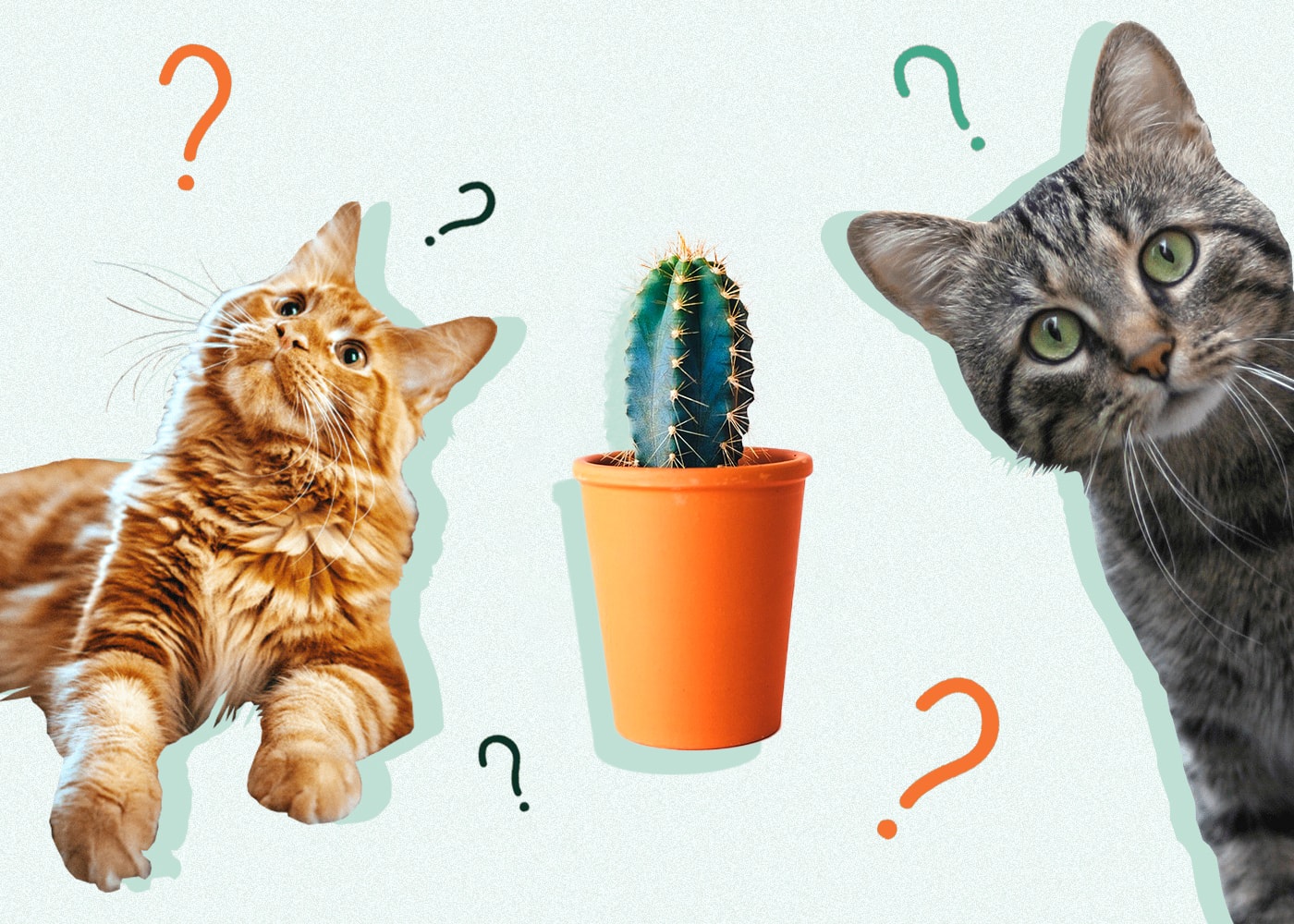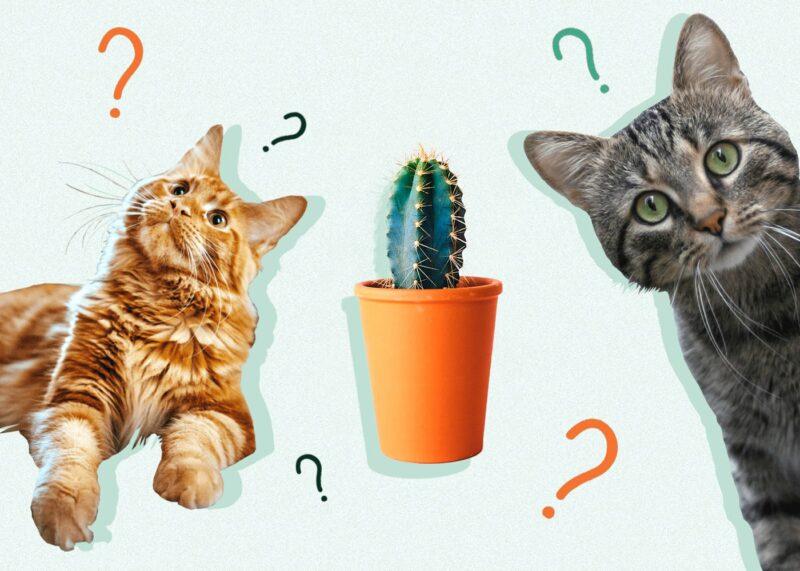Cats are curious creatures, so it’s no surprise that they get into things that they shouldn’t from time to time. But what do you do if they get into a cactus, and should you be worried? While cacti aren’t usually toxic to cats, that’s not always the case, and there are also risks to them eating any.
If you have a feline friend that keeps getting into your household plants, keep reading as we’ll walk you through everything that you need to know!
Can Cats Eat Cactus?
While almost every cactus plant out there isn’t toxic to your cat, that doesn’t mean you should let them chow down on one. While cacti likely aren’t toxic, they do present their own hazards due to their bristles.
These can cause damage to your cat’s mouth, throat, stomach, intestines, and just about every other bodily section that they pass through. Cacti have bristles that keep animals from eating them in the wild, and even if they’re in your home, that doesn’t mean they’re still not effective!
Therefore, we highly recommend keeping cacti away from your cat if they’ve shown signs of chowing down on the plants in the past.

Is Cactus Healthy for Your Cat?
While cacti aren’t necessarily toxic for your cat, they’re not exactly full of a ton of nutrients, either. There’s no reason for your cat to consume cacti, so you don’t need to find creative ways to break it down for them to eat.
Stick with their normal diet, and move the plants to somewhere your cats can’t reach them!
What Succulents Are Poisonous for Cats?
While most cacti plants aren’t toxic to cats, now that you know your cat has an affinity for plants, there are quite a few plant options out there that you should avoid. Here are a few different succulents that PetMD says that you should keep away from your feline friends.
Jade
Jade is a popular succulent because of how easy it is to grow. It has thick leaves, and people love to keep it in small pots, but it also tends to garner attention from cats.
The problem is that consuming this plant can lead to gastrointestinal problems and even to losses in coordination.

Euphorbia
Not every plant that falls into the euphorbia category is toxic to cats, but enough of them are that we recommend avoiding all of them out of an abundance of caution. Euphorbia plants like the pencil cactus and crown of thorns are toxic to cats.
They can cause skin and eye irritation, as well as gastrointestinal problems. Perhaps the most famous plant in this category is the poinsettia, which is mildly poisonous to pets.
Kalanchoe
Kalanchoe, also known as the devil’s backbone or the mother-in-law plant, is a plant that you need to keep far away from cats. Vomiting and diarrhea are the most common signs, but ingestion can rarely also lead to an abnormal heart rhythm.
If you’re looking for a Kalanchoe replacement, consider a Christmas cactus. While they don’t bloom for quite as long nor have as much color, they’re non-toxic to cats.

Is Aloe Toxic to Cats?
While aloe vera plants have medicinal properties for humans and are even safe for us to ingest, that isn’t the case for cats. It can quickly create gastrointestinal problems for cats.
Large dosages can lead to vomiting, diarrhea, and lethargy. If your cat has a habit of chewing on plants, aloe vera is one that you need to keep far away from them.
What Plants Are Safe Around Cats?
So many plants out there can be dangerous to cats, and it can be discouraging to those with a green thumb. The good news is that there are plenty of plants that you can keep around your cat, even if they nibble on a leaf every once in a while.
African Violet
While there are various succulents that you need to avoid if you have a cat, the African violet isn’t one of them. Like most succulents, the African violet is relatively easy to care for and won’t take up much space.
Just keep in mind that it does need a bit more water than most succulents, and if you want more consistent blooms, don’t forget to fertilize it!

Spider Plant
If you’re looking for an easy plant to care for that’s safe around your cat, it’s tough to top the spider plant. It’s novice-friendly, it’s a great air purifier, and it can easily reach 2 feet wide and 3 feet long.
Bird’s Nest Fern
One easy plant that is safe around cats is a bird’s nest fern. It reaches about 2 feet in height and is one of the easiest plants to care for. Simply water it when the soil is dry to the touch, and ensure that the soil can drain quickly!

Venus Flytrap
The Venus flytrap might not be the best choice if you have a cat that likes to bat at the traps, but it’s completely safe. While it can be a bit challenging to care for, it’s a really cool plant.
Final Thoughts
While it’s not always an emergency if your cat gets into a cactus, it’s only a matter of time before a serious problem arises. So, keep cacti away from your cats and get cat-friendly plants for your home instead. Your plants and cats will thank you for it.













